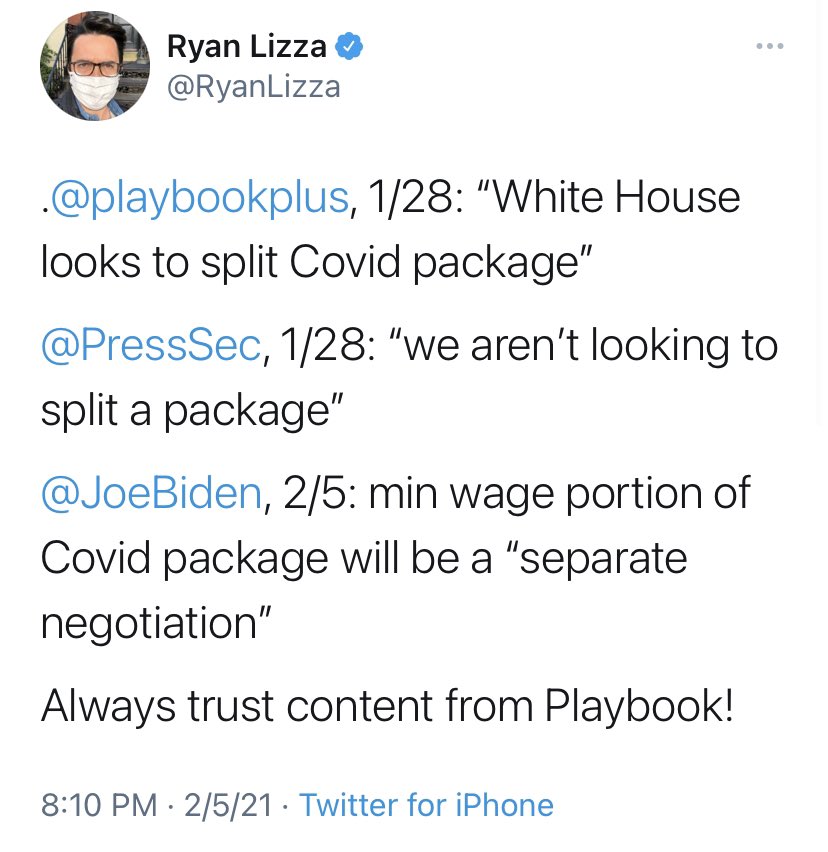
Dems should pay close attention to the elation they're feeling after passing the ARP combined with the off-balance defensiveness Republicans are showing. We should draw these threads together and ask: what happens if we just keep passing popular policies on a majority-vote basis?
https://twitter.com/mattdizwhitlock/status/1370112930767900678
One thing that might happen is, voters will start associating Dems with popular policies. Instead of explaining that we passed some muddle of a bill because we had to sacrifice good policy to secure a laughably small number of GOP votes, we can say we passed the popular thing!
Another thing that might happen is that some Rs might tire of being on the wrong side of very popular things. It's one thing when McConnell holds everyone together to defeat a big bill - that's a net gain for Rs. But what's the gain from voting against a bill that polls at 75%?
It's quite possible that the way to pass the bills America needs AND restore bipartisanship is for the majority to put popular things on the floor, make clear they're going to pass, and invite anyone who wants to be part of the success or have any influence on the policy to join.
Here's the thing: maybe the forces of polarization are simply too strong, and Rs stay in their corner. So then what? Dems have the popular policies all to themselves. And instead of just talking about them, as they had to do under the filibuster, they actually get to *pass* them.
• • •
Missing some Tweet in this thread? You can try to
force a refresh




